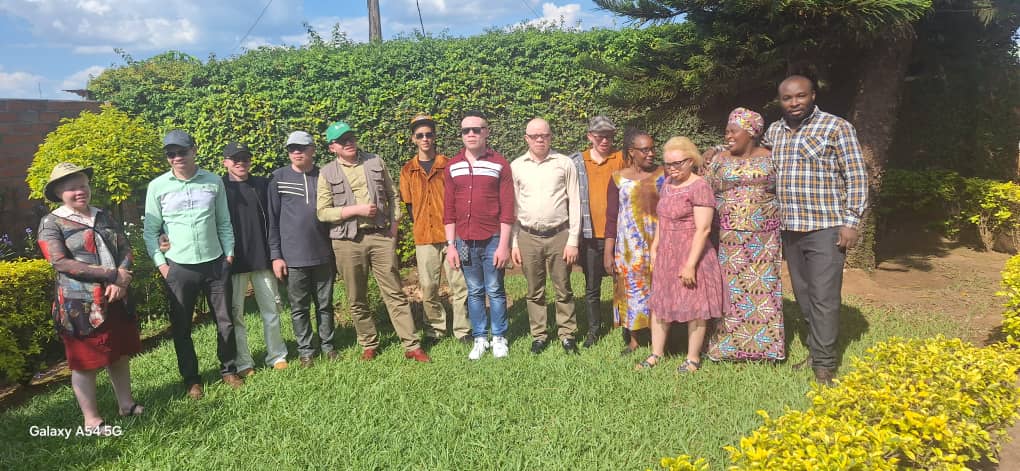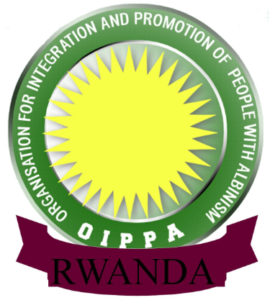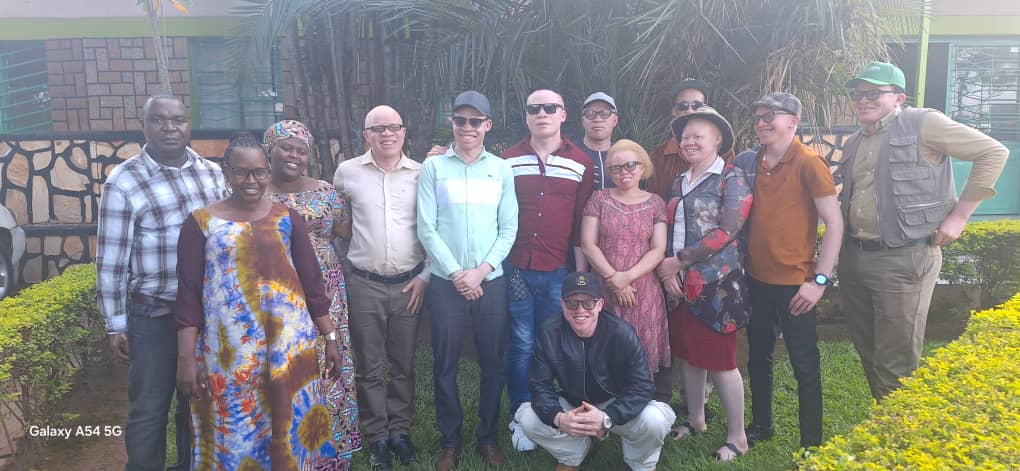The Organization for Integration and Promotion of People with Albinism (OIPPA) has taken a significant step forward in its mission to champion the rights and dignity of persons with albinism in Rwanda by developing its Strategic Plan for 2025–2029. Through a three-day intensive planning workshop held from March 12–14, 2025, the organization has mapped out its renewed strategic direction, reinforcing its commitment to inclusive growth, empowerment and sustainability.
A Vision for Equal Opportunity and Dignity
Since its inception in July 2013, OIPPA has remained at the forefront of advocacy and support for people with albinism, who often face systemic barriers including social exclusion, limited access to healthcare, educational disparities and stigma-driven marginalization. To remain responsive and proactive in addressing these challenges, the organization emphasizes the importance of a forward-thinking strategic plan.
The 2025–2029 Strategic Plan was crafted with participation from OIPPA’s board members, branch leaders, staff and key committees including audit and conflict resolution; ensuring that diverse perspectives informed the planning process. The planning process was structured into three key phases:
Day 1: Situational Analysis
Participants conducted a thorough SWOT analysis to identify internal strengths, weaknesses, opportunities and threats. They revisited the accomplishments of the 2021–2025 plan and critically evaluated lessons learned. Key achievements were highlighted, and pressing challenges were acknowledged to shape an informed foundation for the future. Four strategic priority areas were identified:
1. Health
The health component of the strategic plan recognizes the critical importance of accessible, equitable and specialized healthcare for persons with albinism. OIPPA aims to:
- Improve early detection and treatment of skin cancer and other albinism-related conditions.
- Expand community health outreach programs, particularly in rural areas.
- Facilitate partnerships with dermatologists, optometrists and public health institutions.
- Promote regular provision of sunscreen, protective clothing and optical aids.
By collaborating with digital health platforms and national health systems, OIPPA also envisions the digital integration of health records and awareness tools to improve care coordination and health education for its members.
2. Socioeconomic Empowerment
Socioeconomic empowerment is central to the sustainability and autonomy of persons with albinism. Under this priority area, OIPPA will focus on:
- Vocational training and entrepreneurship programs tailored to diverse skill sets.
- Enhancing digital literacy and providing access to digital resources that open up remote work, freelancing and e-commerce opportunities.
- Facilitating micro-financing and savings groups to stimulate small business growth.
- Building partnerships with local industries and international job platforms.
OIPPA is committed to equipping its members with digital tools, platforms and knowledge to break economic barriers and reduce dependence on traditional employment sectors. By leveraging digital channels, the organization aims to provide members with real-time market insights and access to global marketplaces bridging the digital divide and unlocking new streams of income.
3. Education
Education is both a right and a powerful enabler of social change. The strategic plan outlines targeted actions to:
- Advocate for inclusive curricula that address the learning needs of students with albinism.
- Train teachers to better support learners with visual impairments and sensitive skin.
- Provide school kits, including sun protection materials and vision aids.
- Establish scholarship programs for primary, secondary, and tertiary education.
4. Organizational Development
A stronger OIPPA means better service delivery and advocacy outcomes. In this priority area, the focus will be on:
- Strengthening governance and leadership structures.
- Enhancing internal systems through digital integration for improved data management, transparency and accountability.
- Developing staff competencies through continuous training and professional development.
- Securing long-term funding through strategic donor engagement and partnerships.
Digitizing operational systems will streamline project monitoring, financial reporting, and stakeholder engagement, ensuring that the organization operates efficiently and transparently across all levels.
Day 2: Strategic Framework Development
This session focused on setting clear and measurable strategic objectives aligned with the identified priorities. OIPPA also took this opportunity to revisit and refine its vision, mission and core values, ensuring alignment with the evolving needs of its community. Organizational mandates and guiding principles were also redefined to serve as a blueprint for all future initiatives.
Day 3: Action Planning and Risk Management
Specific strategic interventions were laid out for each priority area. Additionally, the team identified potential risks and outlined mitigation strategies to safeguard the implementation process.

Why a Strategic Plan Matters
For OIPPA, a strategic plan is more than an administrative exercise. It is a transformative tool that guides impactful interventions, strengthens governance, enhances collaboration and ensures transparency. By defining a clear roadmap and performance indicators, the organization is better equipped to track progress, respond to emerging challenges and allocate resources efficiently.
Moreover, the plan aims to reinforce collaboration with government entities, local communities and international partners, ensuring a unified approach to advancing the rights and welfare of persons with albinism in Rwanda.
Looking Ahead
With the 2025–2029 Strategic Plan in place, OIPPA stands poised to continue its mission of building an inclusive society where persons with albinism live with dignity, opportunity and equity. The organization remains committed to advocacy, capacity-building and service delivery; empowering its members and transforming lives.


